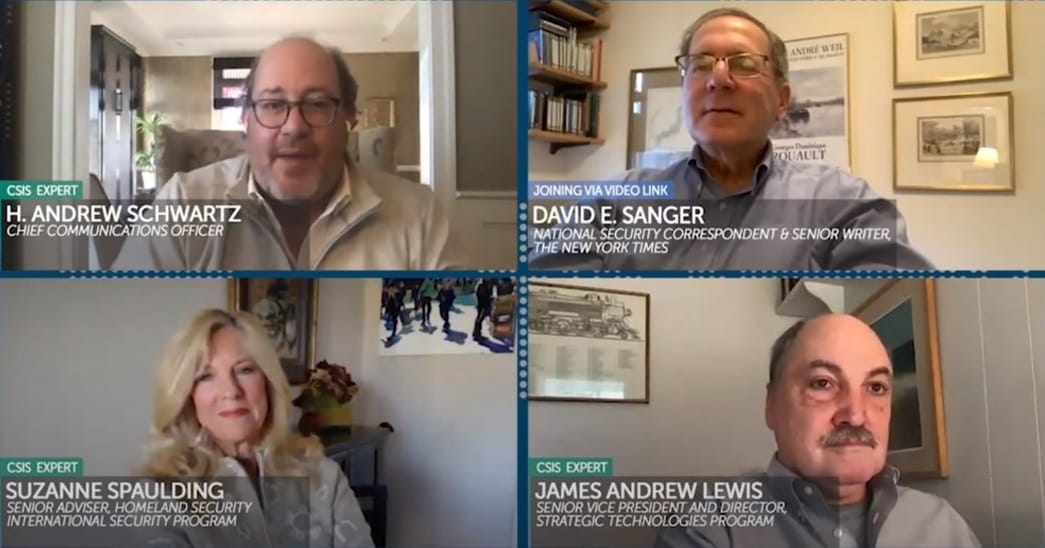President-Elect Joe Biden Must Reinforce Democracy in a Digital Age, Say Cybersecurity Experts
December 7, 2020 – Cybersecurity experts were on the prowl for misinformation emanating from all over the globe about 2020 presidential election. They just didn’t expect that they would find it emanating from the White House. At a Wednesday event hosted by the Center for Strategic and International

December 7, 2020 – Cybersecurity experts were on the prowl for misinformation emanating from all over the globe about 2020 presidential election. They just didn’t expect that they would find it emanating from the White House.
At a Wednesday event hosted by the Center for Strategic and International Studies held to consider the cybersecurity challenges that will be faced by the administration of President-elect Joe Biden administration will face in the next four years, panelists said that disinformation is very much part of the cybersecurity mix.
Russian interference in the 2016 election was “pushing against an open door,” said Suzanne Spaulding, adviser for the Homeland Security International Security Program at CSIS and former under-secretary for the Department of Homeland Security.
The Russians took advantage of deteriorating trust in American institutions and democracy, she said. More in the national security community need to be recognized not only for their knowledge but also for their integrity. That would help restore public trust in American institutions.
The CSIS event considered the release of a new HBO documentary called “The Perfect Weapon,” based on a book of the same name by David Sanger, about cyber conflict in the digital age.
Sanger, one of the panelists on the webinar, is the national security correspondent for The New York Times.
Sanger also said that he was surprised that President Donald Trump himself became the biggest source of misinformation in 2020.
“We had expected that they [the Russians] would change the playbook this year, as I think we said at some CSIS events, but what we missed out here was that President Trump made their life pretty easy for them,” said Sanger.
Future needs for a more cyber-secure world
The panel also discussed how America could improve cybersecurity and rebuild Americans’ faith in national institutions and democracy.
One aspect is to establish cybersecurity “norms” that nations agree to: cyberattacks against each other that should be off the table, especially during peace time. Spaulding mentioned attacks against “critical infrastructure” upon which the public relies, referencing the December 2015 cyberattack against an electric grid in Ukraine.
The new administration takes office next month, and Sanger explained that the cyber world is much more active now than it was four years ago when Biden left the vice president position.
“We’re well into digital transformation that’s reshaping society and politics and security,” said James Lewis, senior vice president and director for the Strategic Technologies Program at CSIS. “And that’s the fundamental difference from say, five years ago. It’s much further along,” he said.
Lewis mentioned several specific areas of this digital transformation that must be considered, including social media usage (which implicates discussions about Section 230 of the Communications Decency Act), crime and how much it costs the global economy, and how data is used both economically but also for warfare.
Just as the digital age redesigned business, politics and entertainment, reinforcing democracy and American institutions will be one of the key challenges facing the Biden administration.








